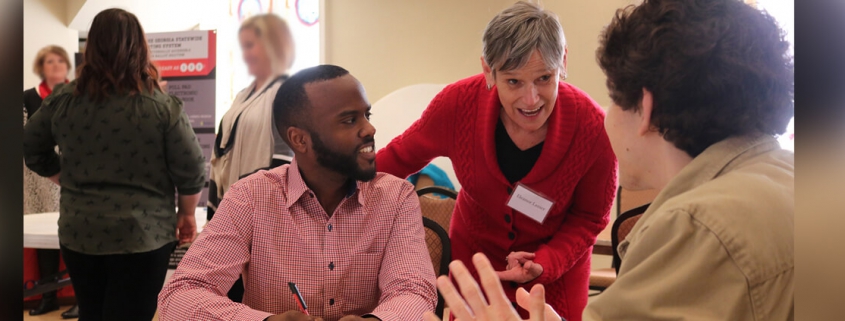Callaway Foundation gift to transform delivery of UGA law school clinic services
This story was originally published on Feb. 22, 2021 on the UGA School of Law website. Photo taken February 2020.
Thanks to a recent $200,000 gift from the Callaway Foundation, the University of Georgia School of Law will expand the provision of legal services through its experiential learning programs, clinics and externships to rural and legally underserved communities in the Peach State.
“I’d like to thank the Callaway Foundation and am grateful for their partnership. This generous donation will harness the power of technology to expand the impact of the law school’s clinics and reach legally underserved parts of the state,” School of Law Dean Peter B. “Bo” Rutledge said. “It will help to provide Georgians with legal assistance on a wide range of issues as well as provide valuable practical experience for our law students who will become tomorrow’s attorneys and leaders.”
In addition, the school envisions scheduling “local legal service days” in Georgia counties, beginning with Troup County this summer.
“Callaway Foundation Trustees are pleased to be part of such a vital project for people across Georgia,” Callaway Foundation President Tripp Penn said. “UGA’s School of Law is one of the best in the country, and we continue to be impressed with Dean Rutledge’s leadership. These clinics are a great way to provide necessary services to vulnerable populations in Georgia and to help cultivate a heart for service among law students.”
Rutledge said this new funding to upgrade and expand technology will be pivotal in growing the provision of legal services and education for our clinics like the Veterans Legal Clinic, the Jane W. Wilson Family Justice Clinic and the Wilbanks Child Endangerment and Sexual Exploitation Clinic, among others. “The pandemic and new technologies are changing the way legal services are provided, and the Callaway Foundation gift will allow the School of Law to more fully embrace these changes to benefit Georgia’s citizens, including those in rural areas.”
The law school operates 18 experiential learning programs that provide legal services for low-income individuals, veterans, victims of domestic violence, small businesses and other clients.




